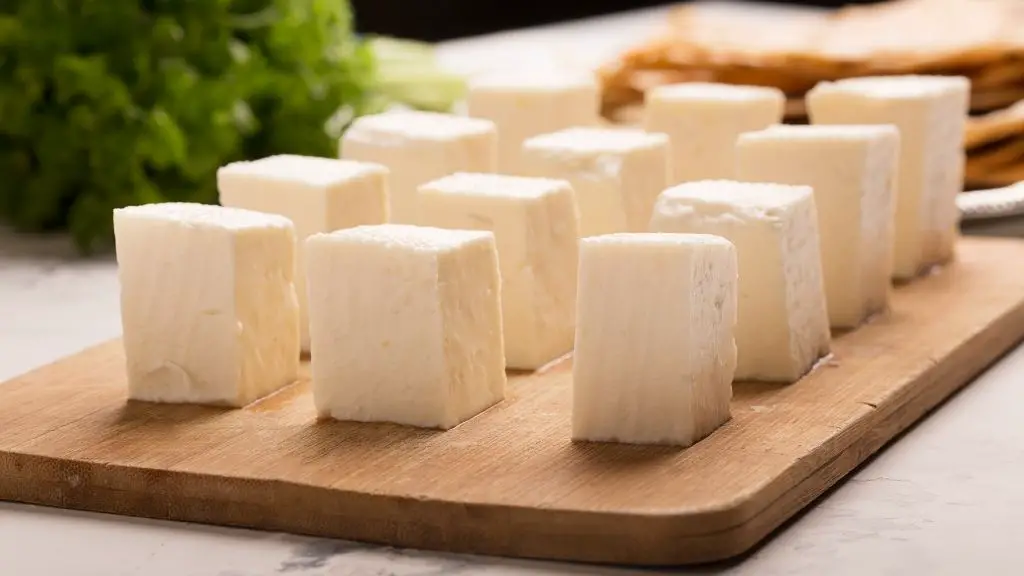Does Paneer Increase Cholesterol?

Are you cutting down on dairy products due to fear of high cholesterol? Then it’s time you came clean about paneer. Paneer is keto friendly, delicious, and loaded with nutrients, but does it increase your blood cholesterol levels? Studies say it does not.
As a vegetarian or an individual who doesn’t prefer consuming meat, people often assume that you don’t receive as much protein as you would if you eat meat.
The one ingredient we can use to bust this myth or misconception is paneer.
Paneer is keto-friendly; it is delicious, loaded with nutrients, and versatile; therefore, it can be used in multiple ways. However, since it is rich in proteins and fats, it is often received with skepticism. Does paneer cause high cholesterol? Is paneer safe for heart patients? Is paneer safe? These are a few questions that cross people’s minds.
To answer all of these questions and more, we decided to address this topic, and in this article, we hope you find answers that might put your mind at ease or help you make an informed decision.
Paneer, a brief
Paneer, a staple in Indian cuisine that also goes by the name ‘cottage cheese’, has found a place in everyone’s heart. It is essentially just cheese that is made from curdling hot milk. The acid used to curdle the milk determines the flavor your paneer will carry.
Once the milk is curdled, the solid particles, mostly nutrients from the milk and milk protein, separate from the whey. The whey is then drained, and the paneer is left aside to set.
Once set, it has the same texture as that of firm tofu. It can be sliced, grated, and also used as a crumble.
What about the nutrients in paneer? How nutritious is this ingredient, and what health benefits can it offer?
To get to those questions, let’s first look at paneer’s nutritional value.
According to the USDA, the following are paneer nutrition facts per 100g [1].
| 321 kcal Energy | ||
| Nutrient | Content in 100g | RDA (% of total RDA) |
| Macros | ||
| Total Carbohydrate | 3.57 g | 130 g (2.7%) |
| Sugar | 3.57 g | 30 g (11.9%) |
| Protein | 21.43 g | 52 g (41.2%) |
| Total Fats | 25 g | 77 g (32%) |
| Saturated fats | 16.07 g | 30 g (53.5%) |
| Micros | ||
| Cholesterol | 89 mg | 300 mg (29.6%) |
| Calcium | 714 mg | 1000 mg (71.4%) |
| Vitamin A | 214 mcg | 900 mcg (23.7%) |
| Magnesium | 8 mg | 420 mg (1.9%) |
| Sodium | 18 mg | 2000 mg (0.9%) |
Paneer is loaded with proteins, fats, and other nutrients, and the health benefits it can offer are plenty.
Some of the health benefits worth mentioning are:
Helps reduce the body’s fat content and increase metabolism [2,3]
Linoleic acid in paneer may help modulate the immune function, re-synthesize glycogen, and potentiate bone mineralization.
It also increases lipolysis and reduces the accumulation of fatty acids on the adipose tissue.
Maintains blood sugar levels [4]
The magnesium in paneer can help control the body’s blood sugar levels. The high protein component in paneer also prevents abrupt variations in the body’s blood sugar level as it helps in the slow release of sugar into the blood.
Maintains healthy bones [5]
Paneer is rich in calcium, and this mineral is known to maintain your bones and teeth. It is also needed for our heart, muscles, and nerves to function properly and for our blood to clot.
Paneer can’t just have health benefits. You wouldn’t be wrong to assume that consuming paneer can have its cons, but is cholesterol a part of the side effects of consuming paneer?
Before we answer that question, it is important to address what cholesterol is and whether or not it’s as bad as it sounds.
Cholesterol, is it all bad?
A good amount of cholesterol is produced by your liver, and a part of it comes from your diet.
Cholesterol is of two types
- Low-density lipoprotein (LDL)
- High-density lipoprotein (HDL)
LDL is considered the bad type of cholesterol that, when accumulated in the body, can cause harmful side effects. It can cause plaque to build upon the walls of the arteries in your brain and heart. If left untreated, this could cause heart diseases, heart attacks, and even strokes [6].
On the other hand, HDL is the relatively “good” cholesterol. It is supposedly beneficial since it may play a role in removing the dangerous cholesterol from your blood.
Cholesterol in excess can pose a threat to your health and body; however, it is not all that bad when produced within limits. It can help protect the outer coating of the cells, enable proper digestion, produce Vitamin D, and play a role in regulating your hormones [6].
Now that we know cholesterol is not all that bad let’s answer the questions of whether paneer causes high cholesterol and if it is safe for heart patients.
How does Paneer Affect Cholesterol Levels?
Since paneer is also known as cottage cheese, it is often referred to as a type of cheese. Dairy products like milk and cheese are known to increase a person’s cholesterol levels based on how much the individual consumes. A few studies suggested that there was no relation between the blood cholesterol levels of an individual and the cholesterol-rich food they eat. However, what affects your blood cholesterol levels and your risk of developing heart diseases are the fatty acids and trans fats [7].
Consuming paneer in moderation doesn’t really affect your cholesterol levels. It doesn’t increase your blood cholesterol levels, and neither does it decrease it or cause any variation. However, that is majorly dependent on how you consume it and how much you consume.
But is paneer safe for heart patients and people with high cholesterol?
Naturally, your best option would be to consult a doctor before consuming paneer or any form of cheese or dairy product. However, consuming paneer hasn’t shown any side effects for heart patients, so saying it is safe for heart patients wouldn’t be a stretch.
| Always consult a doctor before adding or taking food items off your diet; especially if you are a heart patient or might experience high blood cholesterol levels. |
FAQs
Can you eat paneer if you have high cholesterol?
Yes, you can eat paneer if you have high cholesterol. Your blood cholesterol levels are unrelated to the cholesterol-rich foods you might consume. However, it is best to make that call of whether or not to include paneer in your diet only after you consult a doctor.
What are the worst Indian foods for high cholesterol?
Although an Indian diet can be extremely healthy and appetizing, the preparation method might sometimes affect its nutritional value.
A few of the foods that you might want to avoid for high cholesterol are;
- Ghee
- Pakoras or any fried food
- Sweets like jamoon, rasgulla, etc.
- Extra masala added to your meat preparations
What foods raise cholesterol most?
Foods high in saturated and trans fats are known to raise cholesterol the most. Fatty meats, full-fat dairy products, butter, coconut oil, palm oil, and most deep-fried takeaway foods and commercially baked products such as pies, biscuits, buns, and pastries are a few foods that you would want to avoid to keep high cholesterol at bay.
What are the worst foods for high cholesterol?
Foods rich in saturated fats and trans fats are the worst food for high cholesterol.
A few foods that you would want to avoid are,
- Fatty meats,
- Full-fat dairy products,
- Butter,
- Coconut oil,
- Palm oil,
- Deep-fried takeaway foods
- Baked products such as pies, biscuits, buns, and pastries
Wrapping Up
Having an ingredient like paneer that is so versatile and equally nutritious as an option when you rely on a vegetarian diet for your daily meals is a blessing in disguise. However, questions regarding its fat content and how it might affect your cholesterol level have stayed on most people’s minds.
Paneer is nutritious and safe to consume in the right proportions. It will not drastically affect your cholesterol level. But we still advise you to consult a doctor if you are a heart patient or if you might have other health complications. Regardless of what information you receive, it is always best to get in touch with a doctor.
References
- USDA. “Paneer” Food Data Central, (2019).
- Whigham, Leah D et al. “Efficacy of conjugated linoleic acid for reducing fat mass: a meta-analysis in humans.” The American journal of clinical nutrition vol. 85,5 (2007): 1203-11.
- Lehnen, Tatiana Ederich et al. “A review on effects of conjugated linoleic fatty acid (CLA) upon body composition and energetic metabolism.” Journal of the International Society of Sports Nutrition vol. 12 36.(2015).
- Barbagallo, Mario, and Ligia J Dominguez. “Magnesium and type 2 diabetes.” World journal of diabetes vol. 6,10 (2015): 1152-7.
- “Calcium and Vitamin D: Important at every age” Health info- NIH Osteoporosis and Related Bone Diseases – National Resource Center (2018).
- U.S. Department of Health & Human Services. “Blood Cholesterol | NHLBI, NIH.” National Heart, Lung, and Blood Institute, (2021).
- Soliman, Ghada A. “Dietary Cholesterol and the Lack of Evidence in Cardiovascular Disease.” Nutrients vol. 10,6 780.(2018).
![Blue Foods List [with pictures]](https://keevs.com/wp-content/uploads/2023/03/Blue-Foods-List-with-pictures-300x158.png)






